James Oakes Quotes & Sayings
Enjoy the top 8 famous quotes, sayings and quotations by James Oakes.
Famous Quotes By James Oakes

The reformer," Douglass explained in 1883, had "a difficult and disagreeable task before him. He has to part with old friends; break away from the beaten paths of society, and advance against the vehement protests of the most sacred sentiments of the human heart. — James Oakes
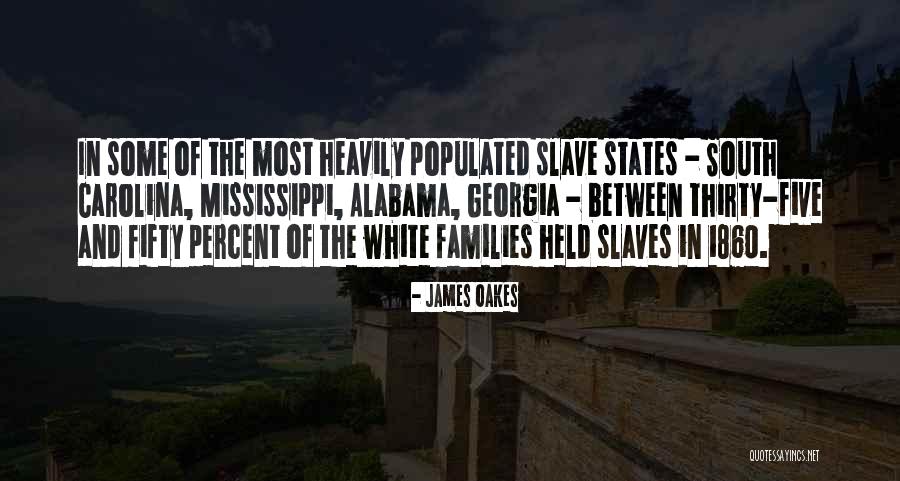
In some of the most heavily populated slave states - South Carolina, Mississippi, Alabama, Georgia - between thirty-five and fifty percent of the white families held slaves in 1860. — James Oakes
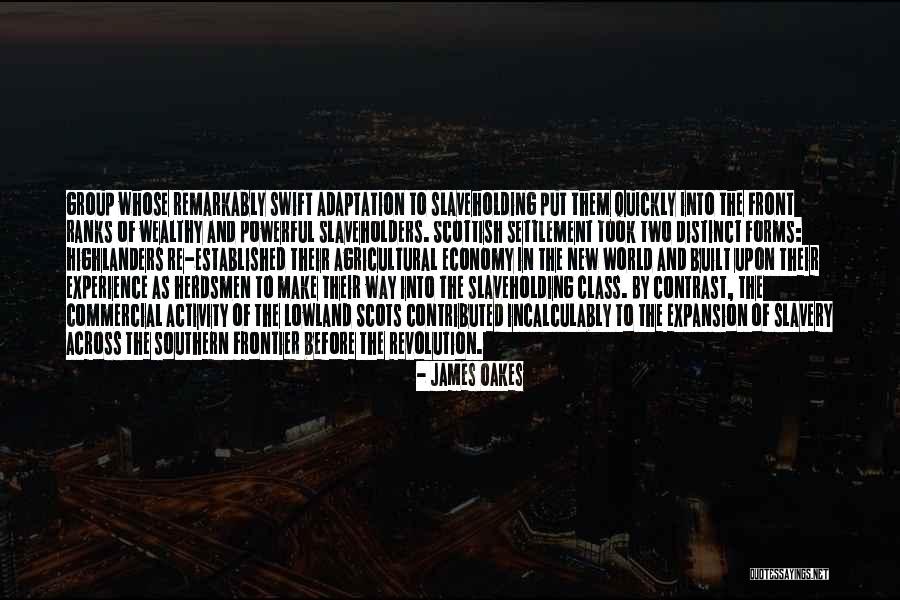
group whose remarkably swift adaptation to slaveholding put them quickly into the front ranks of wealthy and powerful slaveholders. Scottish settlement took two distinct forms: Highlanders re-established their agricultural economy in the New World and built upon their experience as herdsmen to make their way into the slaveholding class. By contrast, the commercial activity of the Lowland Scots contributed incalculably to the expansion of slavery across the southern frontier before the Revolution. — James Oakes
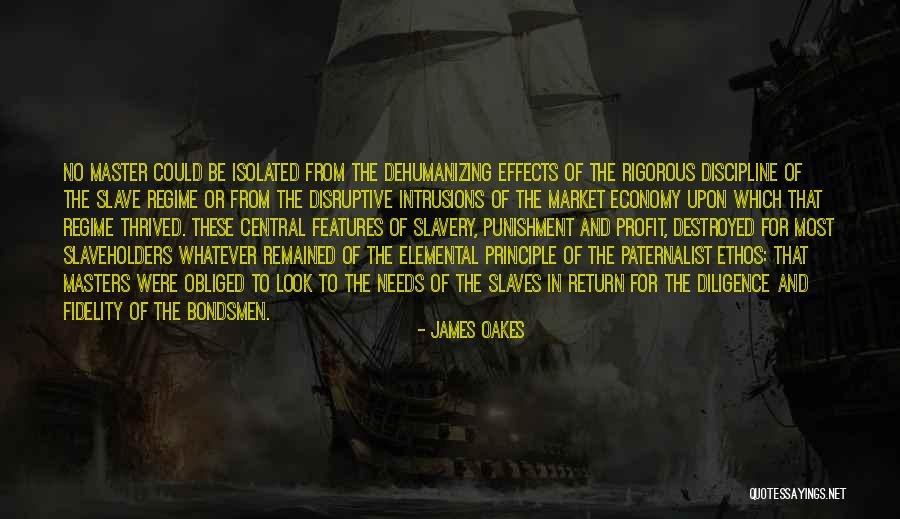
no master could be isolated from the dehumanizing effects of the rigorous discipline of the slave regime or from the disruptive intrusions of the market economy upon which that regime thrived. These central features of slavery, punishment and profit, destroyed for most slaveholders whatever remained of the elemental principle of the paternalist ethos: that masters were obliged to look to the needs of the slaves in return for the diligence and fidelity of the bondsmen. — James Oakes
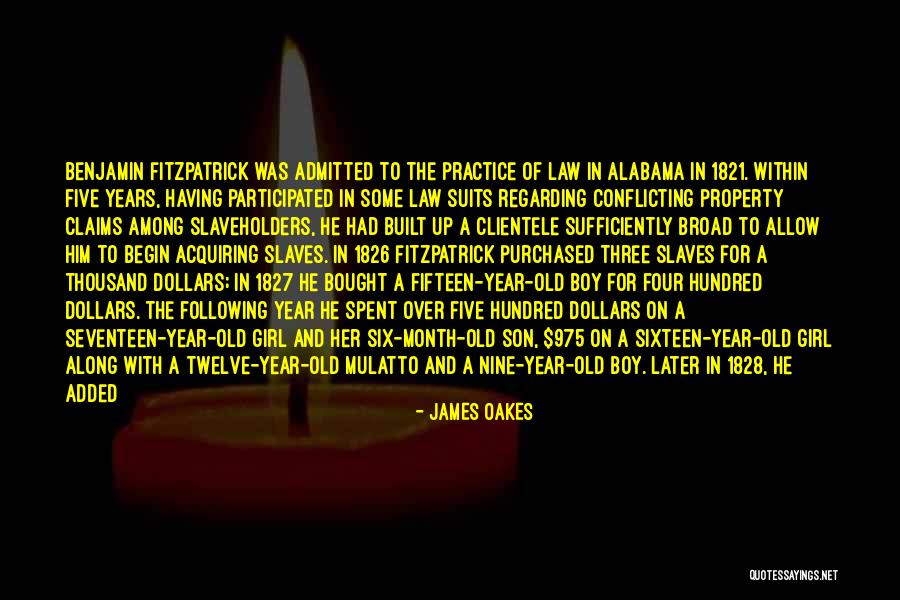
Benjamin Fitzpatrick was admitted to the practice of law in Alabama in 1821. Within five years, having participated in some law suits regarding conflicting property claims among slaveholders, he had built up a clientele sufficiently broad to allow him to begin acquiring slaves. In 1826 Fitzpatrick purchased three slaves for a thousand dollars; in 1827 he bought a fifteen-year-old boy for four hundred dollars. The following year he spent over five hundred dollars on a seventeen-year-old girl and her six-month-old son, $975 on a sixteen-year-old girl along with a twelve-year-old mulatto and a nine-year-old boy. Later in 1828, he added a boy named Peter and a woman named Betsey — James Oakes
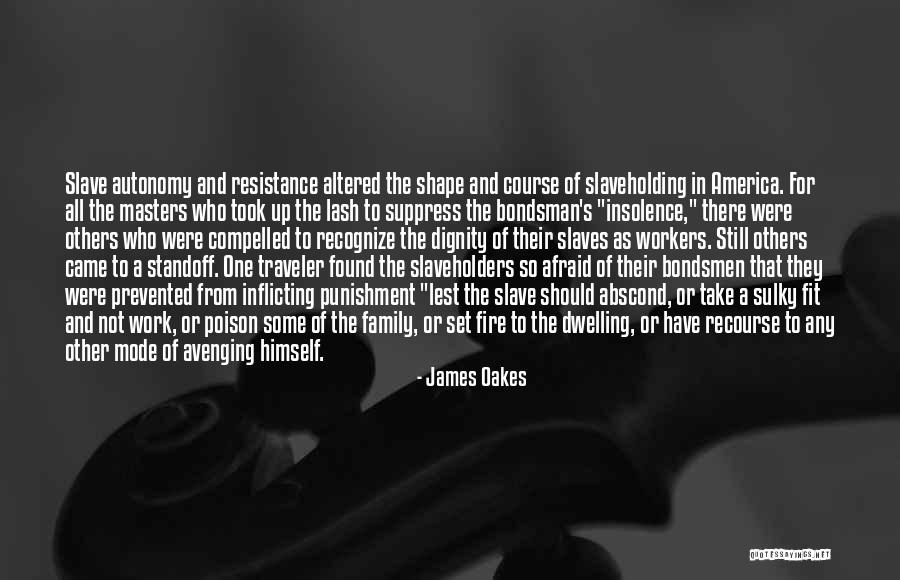
Slave autonomy and resistance altered the shape and course of slaveholding in America. For all the masters who took up the lash to suppress the bondsman's "insolence," there were others who were compelled to recognize the dignity of their slaves as workers. Still others came to a standoff. One traveler found the slaveholders so afraid of their bondsmen that they were prevented from inflicting punishment "lest the slave should abscond, or take a sulky fit and not work, or poison some of the family, or set fire to the dwelling, or have recourse to any other mode of avenging himself. — James Oakes
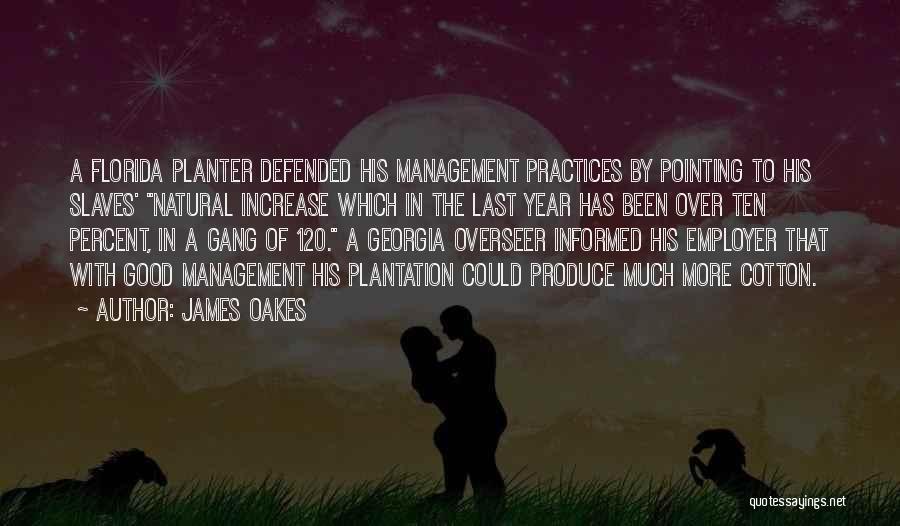
A Florida planter defended his management practices by pointing to his slaves' "natural increase which in the last year has been over ten percent, in a gang of 120." A Georgia overseer informed his employer that with good management his plantation could produce much more cotton. — James Oakes
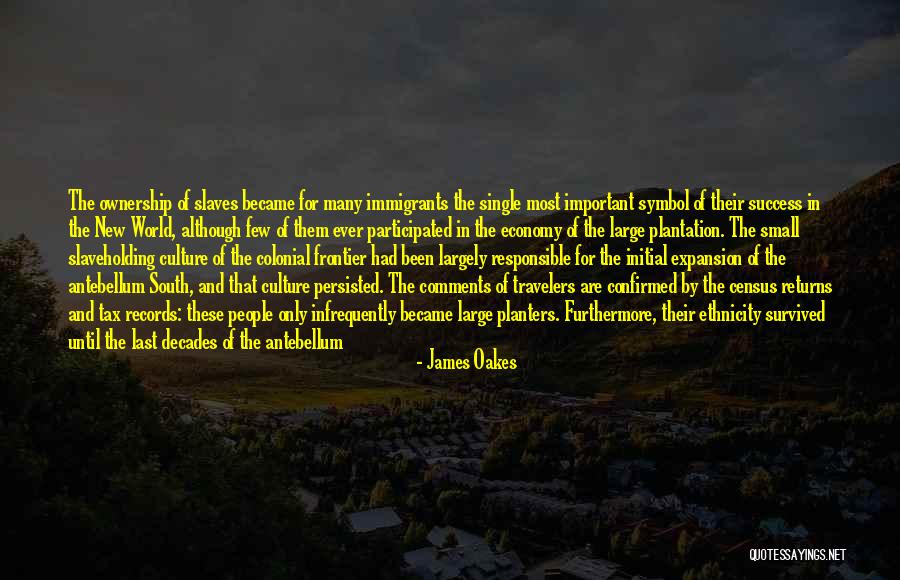
The ownership of slaves became for many immigrants the single most important symbol of their success in the New World, although few of them ever participated in the economy of the large plantation. The small slaveholding culture of the colonial frontier had been largely responsible for the initial expansion of the antebellum South, and that culture persisted. The comments of travelers are confirmed by the census returns and tax records: these people only infrequently became large planters. Furthermore, their ethnicity survived until the last decades of the antebellum — James Oakes





